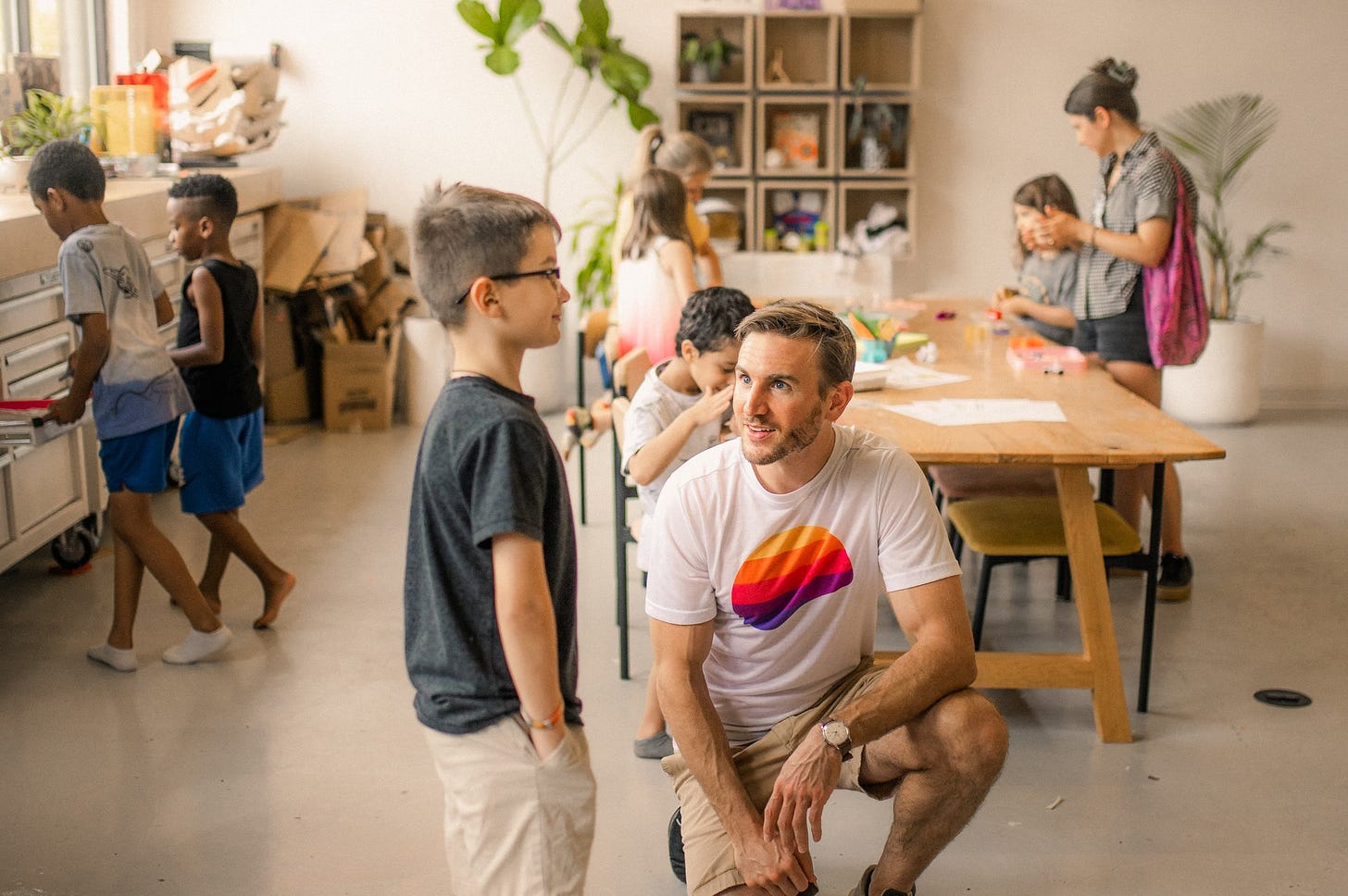Founder of Moonrise
Chris joined me for a live-recorded episode of 100 Atlanta Coffees, which you can find below (Spotify) or here for Apple Podcasts.
Bio:
Chris Turner is the founder of Moonrise - a new model of education combining the flexibility of homeschooling with beautiful spaces, real-world experiences, and built-in community.
Moonrise is leading a new movement called “co-learning,” where kids use technology for academics and then spaces like Moonrise for everything else.
The founding Moonrise location is in Decatur, Ga, where Chris lives with his wife and two kids.
Chris was working in nonprofits before he got frustrated with the prices he was being quoted on software development, so he went to a coding boot-camp, then started a company helping build better and more affordable prototypes. He was frustrated with the schooling options for his children, so he started Moonrise. Are you starting to see a pattern?
He’s a first-principles thinker who’s deeply committed to doing things the right way, and I enjoyed our wide-ranging conversation about the problems with modern education and the pros and cons of alternative solutions.
-
Three reflections on how Chris is pursuing a better way of living:
1. He’s unafraid to imagine something and then build it
Imagination is a bit of a lost art in this era of extremely limited attention spans. Chris lives that lost art. He’s dreaming up a new paradigm for educating children that fuses benefits of historical models with modern technology and an improved physical environment.
Challenges with the current model are evident. Over 65% of American fourth graders don’t read on grade level. Rates of anxiety and depression are at all-time highs. Homeschooling is up 24% since pre-pandemic, representing approximately 6% of all US students.
Chris critiques the traditional school system where age-based grouping, rigid curricula and restrictions on physical movement resemble prisons more than learning environments. He envisions a system where children have more control over their learning and social interactions.
Moonrise is the result of Chris’ willingness to build the system he imagines, rather than accepting the status quo he views as underserving our kids and families.
2. Moonrise makes ‘the real world’ for kids
Chris takes issue with the common saying “welcome to the real world” when challenge strikes in the life of a young adult. Shouldn’t a kid have enough practical experiences they’re excited about that they develop essential life-skills and agency over the ways they spend time and focus?
I challenged Chris on how much ‘real world’ kids really need; I perceive a risk of thrusting the psychosis of adulthood onto kids too early.
Moonrise aims to find a sweet spot - providing kids with more flexibility in what projects they pursue, who they spend time with, and where they go such that they learn how to learn and kindle their unique spark.
By law, students can spend 12 hours per week at Moonrise. It’s a supplement to homeschooling and more traditional educational structures designed to incorporate technology, foster creativity, and help kids develop more well-rounded skillsets.
As we discuss in the podcast, this can even include allowing kids to market and monetize projects at early ages.
-
3. He’s a techno-optimist
So much of the media surrounding technology focuses on potential downsides. But at any point in history it’s been easy to imagine the myriad ways things could go wrong, though it’s only in hindsight we can see the one way in which they turned out okay.
It’s refreshing to hear Chris excited about the horizon-expanding possibilities of technology in education, offering endless opportunities for access to information, experimentation, and exploration.
My eldest daughter is only 3 years old, yet I can already appreciate how meaningful it would be for a child to have an ever-ready, personalized AI tutor who will tirelessly answer every ‘why?’ question kids can incessantly ask.
I’m grateful that we have people like Chris to push the envelope in exploring and adopting new models for education and the use of technology. The innovators play an important role in showing parents and educators what can be possible.
Questions for reflection as we seek the better way:
What are your thoughts on giving kids experience with entrepreneurship and having a job during their school years?
Does your opinion change if the job is an entrepreneurial venture rather than traditional employment?
Thanks again to Chris for joining me, and you can listen to the episode here:







